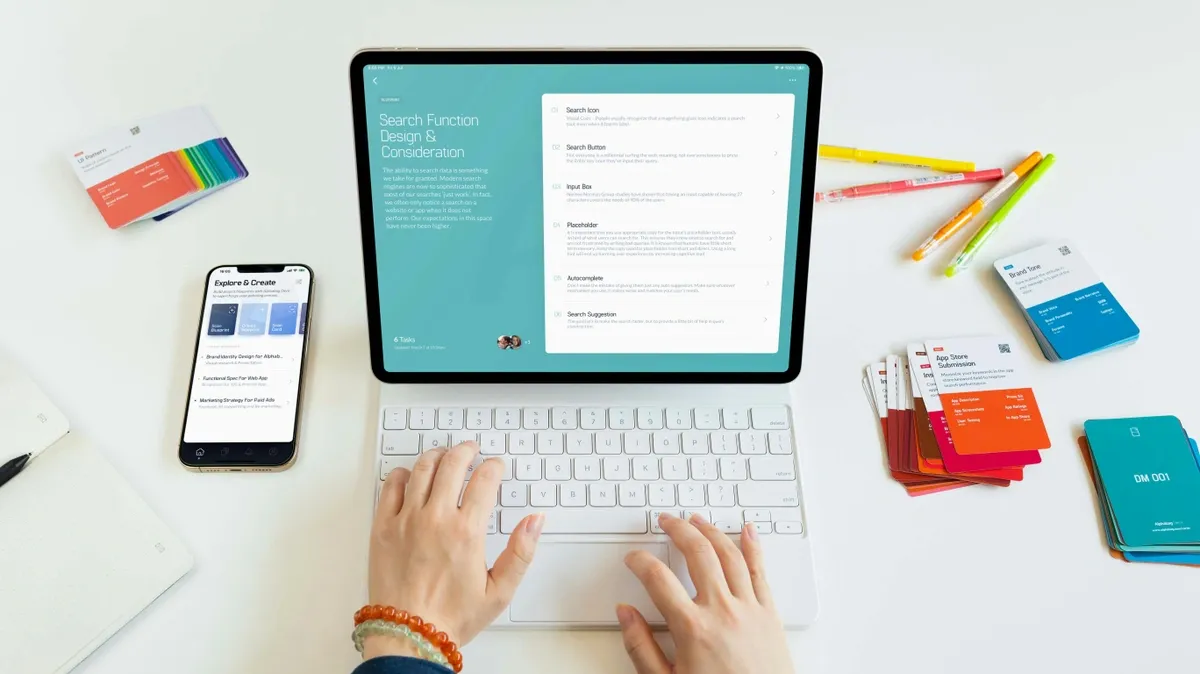
In today’s fast-paced engineering landscape, effective collaboration is paramount to the success of complex projects. Digital project management tools have emerged as essential resources that streamline workflows, enhance team coordination, and ensure that project milestones are met efficiently. By leveraging these tools, engineering firms can improve resource allocation, maintain high standards of quality control, and foster seamless communication among diverse teams, ultimately driving better project outcomes.
Importance of Enhanced Collaboration in Engineering Projects
Engineering projects are inherently complex, often involving multiple teams with diverse expertise. The successful execution of these projects necessitates precise coordination among all team members. According to a report by Schuette Metals, Inc, engineers frequently work in silos, leading to communication issues and a lack of mutual understanding between teams. Collaborative engineering mitigates the risk of project failure by ensuring that all parties involved have a clear understanding of the project goals and requirements. This approach also enhances the employee experience, making everyone feel included and valued.
One of the critical challenges in engineering projects is the divergent objectives of the various stakeholders, which can hinder the setting of common goals. As suggested by ScienceDirect, inappropriate collaborative models, limited funding, and the difficulty of emphasizing collaboration capabilities during the tendering process add layers of complexity to these projects. Poor communication is another significant issue, impacting project outcomes negatively. A report by Nutcache reveals that ineffective communication can lead to missed deadlines and overlooked project aspects, risking $135 million for every $1 billion spent on projects, with 56% of that risk attributed to communication failures.
Enhanced collaboration plays a pivotal role in the success of engineering projects by improving resource allocation, quality control, and the timely achievement of project milestones. According to European Springs Ireland, collaborative engineering promotes both effectiveness and efficiency in project development. It allows for the exchange of ideas and innovative solutions, improving the overall quality of products and services.
Digital project management tools are instrumental in fostering this collaboration. An article by LinkedIn highlights that these tools can increase productivity, optimize resource usage, and enhance communication and collaboration. Furthermore, Switchboard suggests that online collaboration tools offer real-time updates, better task management, improved communication, and robust project management features.
In summary, enhanced collaboration in engineering projects, facilitated by effective communication and the right project management tools, can significantly improve productivity, resource allocation, quality control, and timely project completion. Digital project management tools, like those offered by Minute7, are essential in addressing the complexities of engineering projects and ensuring their successful execution.
Features of Digital Project Management Tools that Enhance Collaboration
Digital project management tools are indispensable for engineering firms looking to enhance collaboration and streamline workflows. These tools offer a variety of features that promote real-time communication, effective task management, and centralized data storage, all of which are essential for successful project execution.
Real-Time Communication and Updates
One of the most significant advantages of digital project management tools is their ability to facilitate real-time communication. Features such as instant messaging, notifications, and real-time project status updates allow team members to share information immediately, ask questions, and resolve issues without the delays associated with traditional communication methods like email (source). Document sharing and collaborative editing ensure that everyone has access to the most current information, fostering a more synchronized and efficient team environment (source).
Task Management and Workflow Automation
Effective task management is crucial for the timely completion of engineering projects. Digital project management tools offer functionalities such as assigning and tracking tasks, automated reminders, and follow-ups, all of which enhance collaboration by keeping everyone aligned on project goals. Visual project tracking methods like Gantt charts and Kanban boards provide a clear overview of project timelines and dependencies, making it easier to manage complex workflows (source). Workflow automation further boosts efficiency by streamlining repetitive tasks, allowing team members to focus on more critical aspects of the project (source).
Centralized Data Storage and Accessibility
Centralized data storage is another key feature that enhances collaboration in engineering projects. Secure cloud storage solutions ensure that all project documents are stored in a single, easily accessible location. This centralized approach not only improves data accessibility but also enhances decision-making by providing all stakeholders with the most up-to-date information (source). Additionally, the ability to access project data from any device ensures that team members can collaborate effectively, regardless of their location (source).
By incorporating features such as real-time communication, task management, workflow automation, and centralized data storage, digital project management tools significantly enhance collaboration among engineering teams. Minute7, with its robust time tracking and expense reporting capabilities, seamlessly integrates into this ecosystem, providing engineering firms with the tools they need to manage time and expenses efficiently, thereby contributing to the successful execution of complex projects.
Implementing Digital Tools in Engineering Firms
Choosing the Right Tools
Selecting the appropriate digital project management tools is imperative for engineering firms aiming to enhance collaboration and efficiency. Several factors should be considered during this selection process. Functionality is a primary concern; the tool must offer essential features such as task management, resource allocation, and reporting to meet the firm’s specific needs (source). Additionally, the user interface should be intuitive and user-friendly, ensuring that team members can adopt the tool without extensive training. Integration capabilities are equally important, allowing seamless connectivity with other essential systems like QuickBooks for billing and payroll purposes (source).
Training and Adoption
For digital tools to be effective, thorough training and high adoption rates among team members are crucial. Providing comprehensive training sessions, detailed user manuals, and ongoing support can facilitate this process. Strategies to ensure high adoption rates include securing buy-in from all organizational levels, regularly collecting feedback, and making necessary adjustments to improve user experience (source). Cultivating a workforce adept in new digital technologies is vital. Training and development programs equip employees with the skills needed to leverage digital tools effectively, driving the firm’s digital transformation efforts (source).
Measuring Success and Continuous Improvement
To gauge the success of collaboration efforts, engineering firms should utilize Key Performance Indicators (KPIs) such as productivity, quality, timelines, and customer satisfaction. Tracking these metrics provides valuable insights into the efficacy of digital tools and highlights areas needing improvement (source). Regular feedback and updates are essential for continuous improvement, ensuring the tools remain aligned with the firm’s evolving needs (source). Staying competitive requires adapting to new technologies and methodologies. This involves continually assessing the firm’s current practices, researching emerging trends, evaluating options, and implementing changes. Ongoing review and reflection enable the firm to learn from experiences and refine its project management practices (source).
In conclusion, implementing digital project management tools in engineering firms involves careful selection, comprehensive training, high adoption rates, and continuous improvement. Minute7, with its robust time tracking and expense reporting features, offers an ideal solution for engineering firms seeking to enhance collaboration and streamline their project management processes.
Leveraging Minute7 for Enhanced Collaboration in Engineering Projects
In the realm of engineering projects, where complexity and precision are paramount, effective collaboration is the linchpin for success. Digital project management tools have revolutionized the way teams communicate, manage tasks, and access data, leading to more efficient and productive project workflows. By integrating these tools into their operations, engineering firms can overcome the challenges associated with project complexity and stakeholder coordination.
Minute7 stands out as a powerful ally in this digital transformation. Its seamless integration with QuickBooks and other accounting packages makes it an invaluable tool for engineering firms aiming to streamline their time tracking and expense reporting processes. The platform’s ease of use, combined with its robust feature set—including timesheets, expense tracking, secure data storage, and mobile accessibility—ensures that team members can efficiently track their contributions and expenditures from anywhere, at any time.
The importance of real-time communication, effective task management, and centralized data access cannot be overstated in engineering projects. Minute7 addresses these needs by providing a user-friendly interface and a comprehensive suite of features that facilitate collaboration and enhance project oversight. By leveraging Minute7, engineering firms can ensure that their teams remain synchronized, deadlines are met, and project quality is maintained.
Moreover, the implementation of Minute7 is supported by its straightforward subscription model and a 30-day free trial, allowing firms to experience its full capabilities without any financial commitment upfront. This makes it easy for engineering firms to adopt and integrate the tool into their existing workflows, ensuring a smooth transition and immediate benefits.
In summary, engineering firms looking to enhance their collaboration efforts and streamline project management processes will find Minute7 to be an essential tool. By providing real-time updates, efficient task management, and centralized data access, Minute7 empowers engineering teams to achieve better project outcomes, maintain high standards of quality, and optimize resource allocation. Embracing Minute7 is a strategic step towards achieving excellence in engineering project management.



